“Who Cares About Trigger Pull Weights... Why Bother?”
In a nutshell, only those who want to be accurate when they shoot care about trigger pull weights. We’ve all wrestled with triggers that were less than stellar. We’ve all seen the results of that poor trigger in shots on the target that resembled a pattern, not a group. Why? Well, if you have to pull the trigger REALLY hard in order to get the gun to fire, generally your shots will end up all over the target.Pull Weight Matters
Think about it – it’s just common sense... if a right-handed shooter has to pull that revolver’s trigger extra-hard, chances are the shots are going to be grouped to the right and possibly down, since he or she has to exert extra force on the stubborn trigger in order to get the gun to fire which can pull the gun out of alignment. For a lefty, take the group to the left and down. This is a generality, but you can see how an overly-stiff trigger can affect things. Granted, there is a lot more to effective shooting than just trigger pull weight, but this alone can have a pretty big effect on overall accuracy (or lack therof). That’s where a trigger pull gauge comes in handy. This little gizmo allows you to get a specific reading on your guns’ trigger pull weight. Once you know that, you can decide if a custom trigger (or trigger job) is in order for that gun. Also, you will know if you should try to compensate for that 11-pound-plus pull on that old Colt 1917 revolver. I understand that we all know if a trigger is stiff – that's obvious – so we tend to accommodate and compensate for that by holding the gun a bit differently, etc., but knowing the exact weight helps. Granted, a trigger pull weight gauge is only one of several gunsmithing tools that can help you better understand your guns, but it is probably the first tool we go to in order to find out more about those guns.BONUS OFFER: Get your free shooting range targets to print at home!
Get your free targets to print at home!
Mechanical Or Digital?
What’s the difference? Well, mostly in readout accuracy. Either a mechanical (spring) strain gauge or a digital one will tell you the trigger’s pull weight in ounces or grams, but I find the digital more precise and easier to use. It is also easier to read the results on the digital display provided. The other obvious benefit of the digital variety is that it is not limited to 8 or so pounds pull weight like some of the spring ones are. Also, the smallest unit of measurement can be as low as one-tenth of an ounce, depending on model. Most spring gauges will only read to the nearest two ounces. That would suffice if you had a gun with a lighter trigger or if a 2-ounce increment will work but if your needs are more demanding, you may want to look at the digital models. Let’s look at a few different gauges and see what pros and cons they offer.Mechanical Pull Weight Gauge
1. RCBS Trigger Pull Gauge
 RCBS is a name well-known in shooting circles. They make a huge variety of equipment for reloaders and shooters, and with this trigger pull gauge they give the serious shooter a tool that will help him or her determine the pull weight of the triggers of the guns they own. It reflects typical RCBS workmanship and quality.
RCBS is a name well-known in shooting circles. They make a huge variety of equipment for reloaders and shooters, and with this trigger pull gauge they give the serious shooter a tool that will help him or her determine the pull weight of the triggers of the guns they own. It reflects typical RCBS workmanship and quality.
Pros
- Easy to use
- Measures in both ounces and grams
- No electronics to get out of adjustment
Cons
- Only measures to 4.5 pounds
- Not very precise
- You must repeat measurements exactly in order to replicate results
2. Timney Pull Weight Gauge
 The Timney Pull Weight Gauge is a viable spring strain gauge for the discriminating shooter. The current model measures from 8 ounces to 10 lbs. If you can still find one, they made another one that measured from one to 25 pounds, but has been discontinued. This current model is described as being useful for measuring custom triggers, while the older one was billed as being for factory triggers. However you use it, it should do the job for you.
The Timney Pull Weight Gauge is a viable spring strain gauge for the discriminating shooter. The current model measures from 8 ounces to 10 lbs. If you can still find one, they made another one that measured from one to 25 pounds, but has been discontinued. This current model is described as being useful for measuring custom triggers, while the older one was billed as being for factory triggers. However you use it, it should do the job for you.
Pros
- Measures up to 10 pounds
- Small and handy
- Well-made by a company that makes custom triggers
Cons
- Measures up to 10 pounds only
- Two-ounce increments
3. Wheeler Trigger Pull Gauge
 The Wheeler gauge is similar to the RCBS above in its measurement capabilities: 8 ounces to 8 pounds, with 2-ounce increments. Built like the two other gauges listed above, it will hold the indicator at the place on its scale where the trigger breaks. Wheeler is a company known for its gunsmithing tools and accessories, and this gauge is an example of the workmanship they bring to the table.
The Wheeler gauge is similar to the RCBS above in its measurement capabilities: 8 ounces to 8 pounds, with 2-ounce increments. Built like the two other gauges listed above, it will hold the indicator at the place on its scale where the trigger breaks. Wheeler is a company known for its gunsmithing tools and accessories, and this gauge is an example of the workmanship they bring to the table.
Pros
- Small, light
- Measures from 8 ounces to 8 pounds
- Precise scale markings
Cons
- Measures from 8 ounces to only 8 pounds
- Measures in 2-ounce increments
Digital Pull Weight Gauges
Once you enter the world of digital pull weight gauges, you will most likely not use a mechanical one again. The precision that these gauges are capable of is truly impressive. Let’s look at two of the more popular models out there...the Wheeler Professional and the Lyman Electronic Digital gauges.1. Wheeler Professional Trigger Pull Gauge
 The Wheeler Professional gauge is a well-built unit. It carries the load cell in the end of the “hook", so it contacts the trigger directly. Utilizing an over-molded construction with soft-touch buttons, this unit is easy to use. Controls include max, min, live weight and average. This is one very useful tool.
The Wheeler Professional gauge is a well-built unit. It carries the load cell in the end of the “hook", so it contacts the trigger directly. Utilizing an over-molded construction with soft-touch buttons, this unit is easy to use. Controls include max, min, live weight and average. This is one very useful tool.
Pros
- Measures pull weights from 0 – 12 pounds
- Plus-or-minus 2/10 ounce accuracy
- Audible indicator
- Low battery indicator
- Digital display, soft-touch buttons
- Foam-lined case
- Rod stores when not in use
Cons
- Pricey
- Might be more than the average shooter needs
2. Lyman Electronic Digital Trigger Pull Gauge
I own this gauge. I received it as a gift, one that was very welcome. Owning a few guns, I always had to guess at trigger pull weights, but not anymore. I included a short chart of trigger pull weights of some of my guns that I measured, below, in order to show the precision that a digital gauge can offer. This gauge will come in handy, not only for me but for our sons who own guns and my shooting friends as well. It has enough features that make it very useful without going overboard like some other, more-expensive models.

 A measured single-action pull from my trusty Taurus 85 snubby...3 pounds, 14.9 ounces or just shy of 4 pounds. The gauge will display up to 12 pounds/ 5.4 Kg.
According to Lyman, this gauge is 20 times more accurate than the spring type, and will weigh to the nearest 1/10th ounce/2 grams. The Lyman will “remember” up to 10 trigger pulls and then will display the average when that button is pressed. This is very handy and saves a lot of calculator work. It runs off 2 included AAA batteries.
The rod has four different positions, according to the literature that came with the unit and locks at each of those. When finished, press it back down into its rest on the top of the unit and put it away, in its case.
In the interest of nothing other than I was curious to find out, here are some pull weights from a few guns I own. Notice the precision, down to the tenth of an ounce. These are the averages of at least 5 pulls each. I’ll use the ‘ for pounds and the “ for ounces to save room:
A measured single-action pull from my trusty Taurus 85 snubby...3 pounds, 14.9 ounces or just shy of 4 pounds. The gauge will display up to 12 pounds/ 5.4 Kg.
According to Lyman, this gauge is 20 times more accurate than the spring type, and will weigh to the nearest 1/10th ounce/2 grams. The Lyman will “remember” up to 10 trigger pulls and then will display the average when that button is pressed. This is very handy and saves a lot of calculator work. It runs off 2 included AAA batteries.
The rod has four different positions, according to the literature that came with the unit and locks at each of those. When finished, press it back down into its rest on the top of the unit and put it away, in its case.
In the interest of nothing other than I was curious to find out, here are some pull weights from a few guns I own. Notice the precision, down to the tenth of an ounce. These are the averages of at least 5 pulls each. I’ll use the ‘ for pounds and the “ for ounces to save room:
| Gun: | Single Action: | Double Action: | Striker-Fired: |
|---|---|---|---|
| Charter Arms Pathfinder .22LR | 2’ 4.9” | 11’ 8.6” | -- |
| Sar K2P 9mm | 2’ 15.7” | 6’ 15.5” | -- |
| Taurus G2C | -- | -- | 3’ 11.0” |
| Taurus Spectrum | -- | -- | 7.0’ |
| Taurus Model 85 | 3’ 10.1” | 8’ 13.7” | -- |
| S&W 629 .44 Magnum | 2’ 14.1” | 8’ 7.5” | -- |
| Springfield Armory XDM .45 | -- | -- | 3’ 10.6” |
Pros
- Measures pull weights from 1 ounce to 12 pounds
- Plus-or-minus 1/10 ounce accuracy
- Digital display, easy-touch buttons
- Will average up to 10 trigger pulls
- Is 20X more accurate than common spring gauges (according to Lyman)
- 4-position rod stores when not in use
- Comes with plastic storage case and AAA batteries
- More affordable than some other digital gauges
Cons
- Not as cheap as mechanical gauges

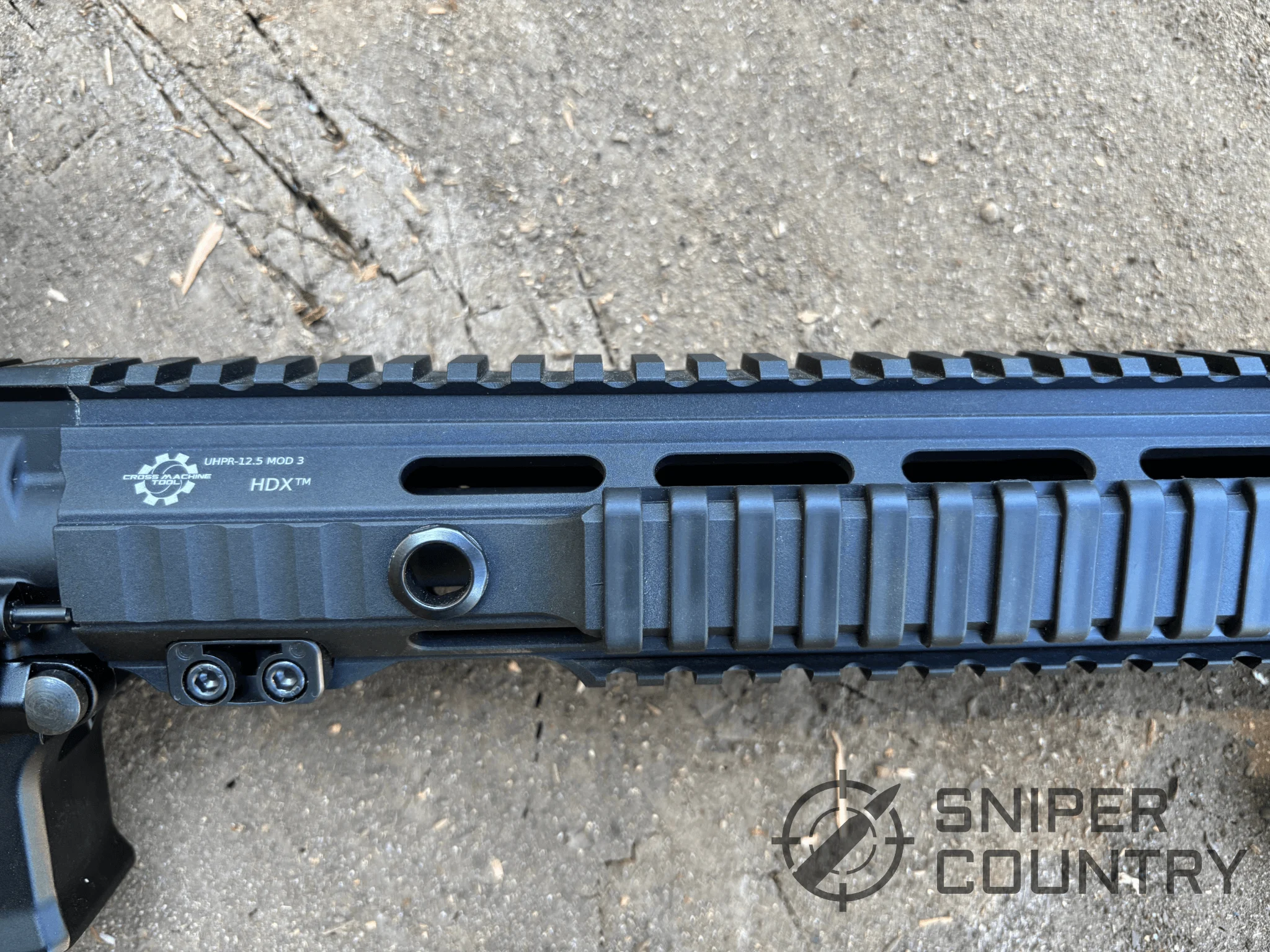
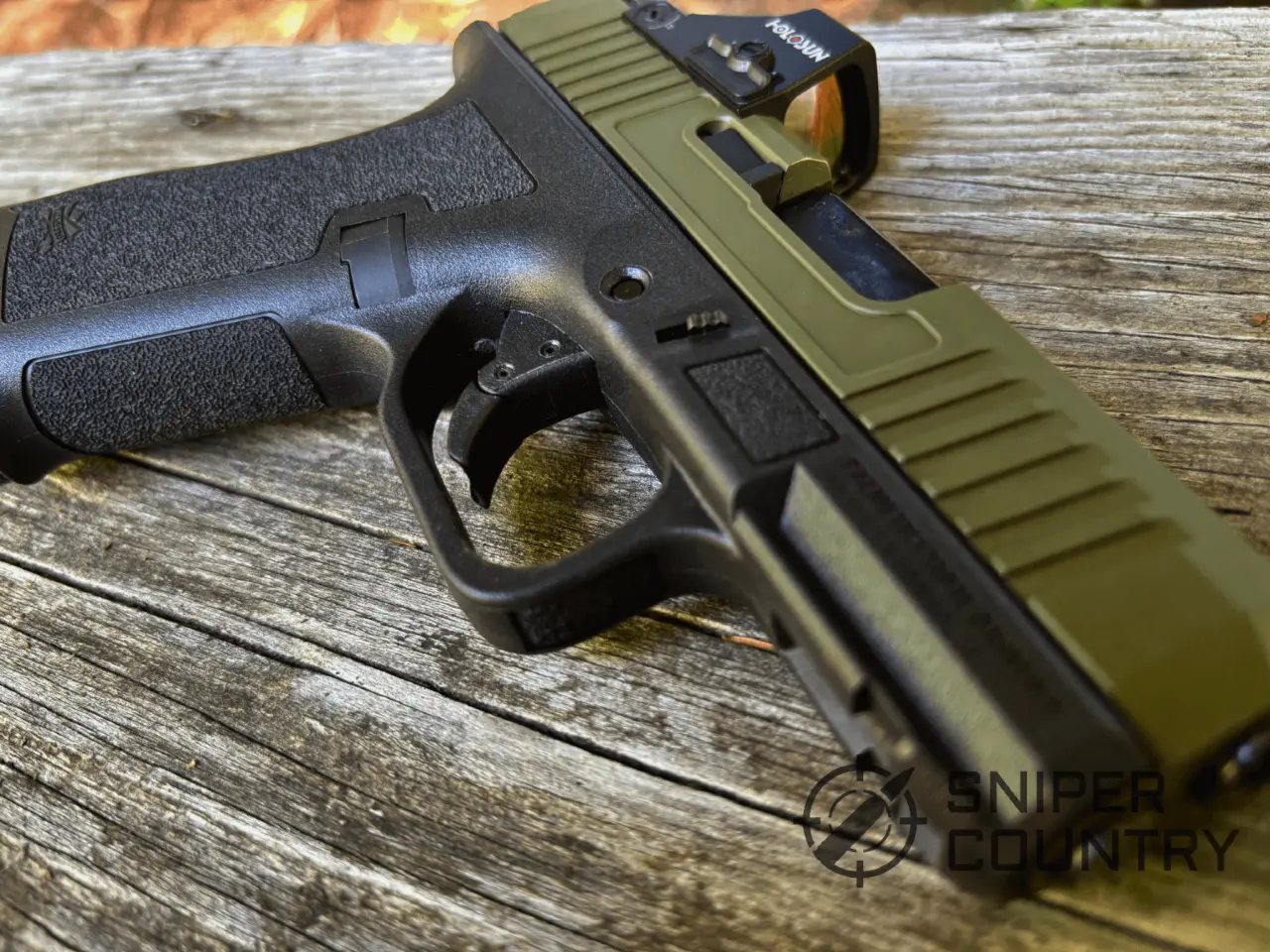
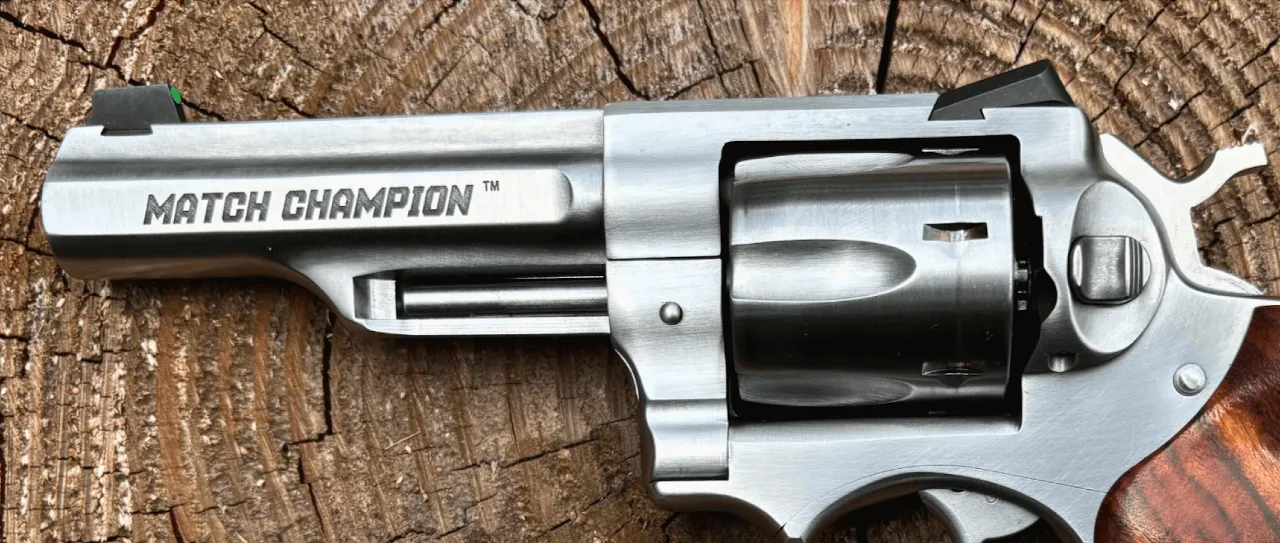






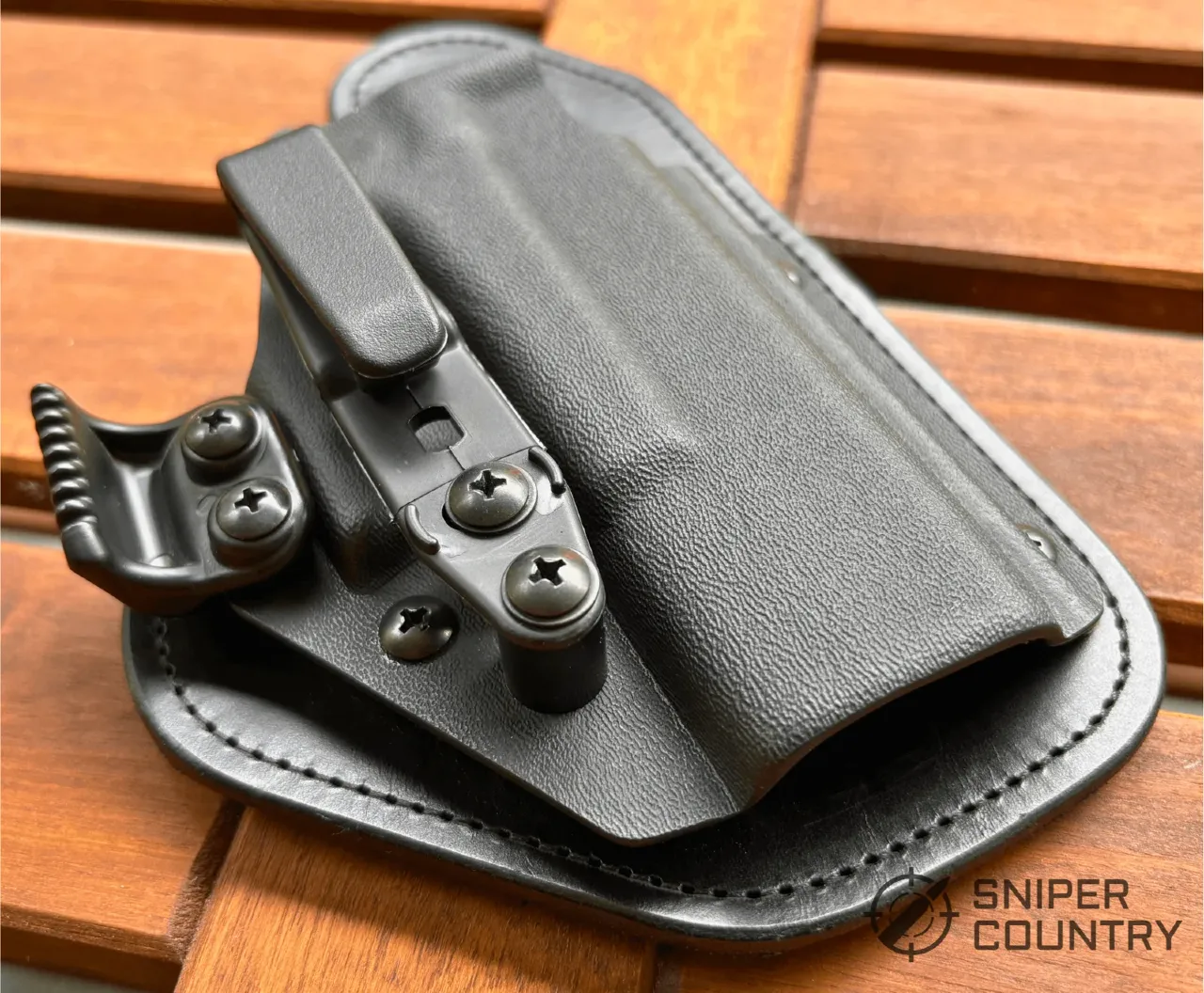

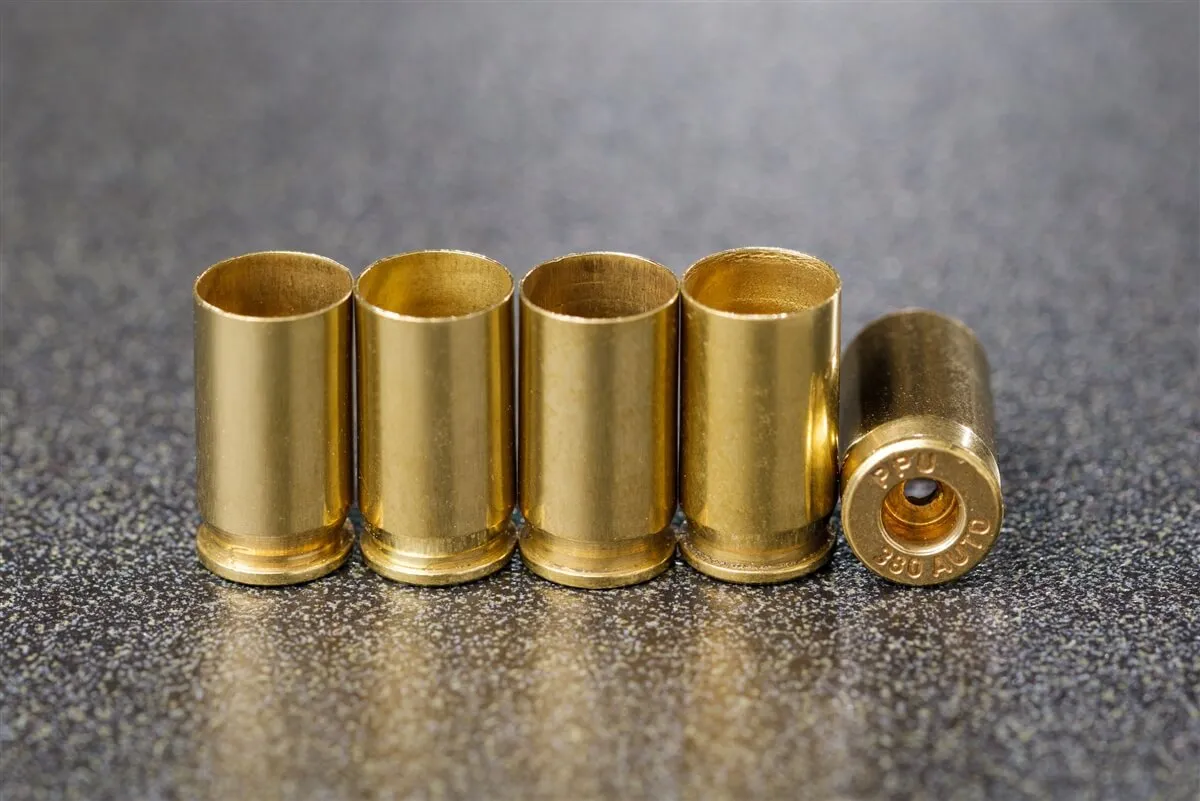
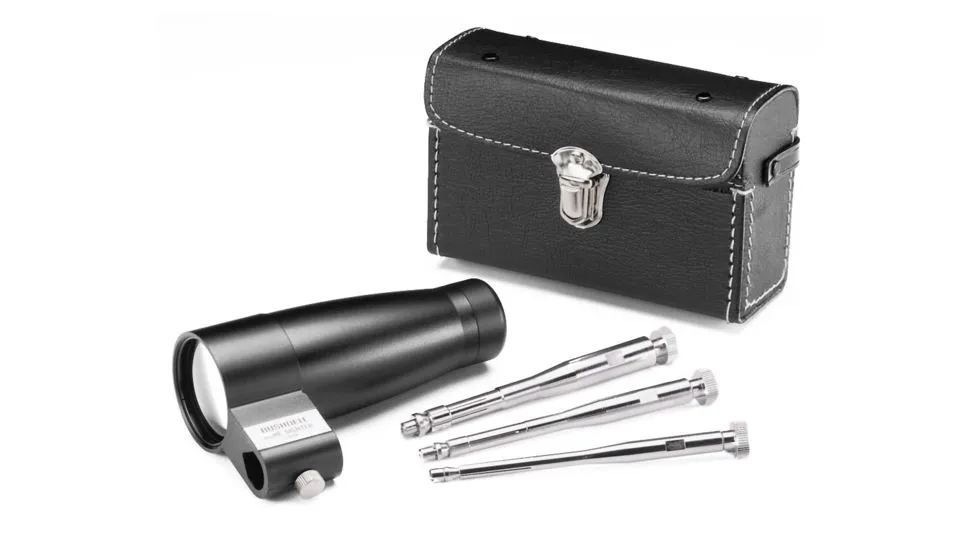
4 Responses
I bought the Lyman gauge last year, find it easy to use, accurate & repeatable, with, as you say, having the gauge in the same position on the trigger being important – not that this is in any way difficult with the firearm in a gun vice (which is where it should be for this kind of work).
If I lost it or broke it, I’d buy another the next day.
Mike, I agree – it would be worth the replacement cost. I’m glad you like yours – thanks for writing!
i have owned the Wheeler gauge and am very dissatisfied and disappointed with my purchase. The relatively low cost of any of these is not an issue for me, but the reliability and accuracy is. the Wheeler gauge did OK for me, but the interior electronics did not like our Florida Humid Environment and failed miserably i threw it away and am starting over. So sad.
Tom, too bad about that. That company usually makes good stuff, but in your humid environment that may be a problem. You might want to give the Lyman a try – they’ve sold a ton of them. I’m happy with mine – it works well. Thanks for writing!